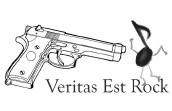
One would think that a band born out of a bad breakup would have very little of substance to offer the greater musical community. Considering the last incarnation of this sob story was by our favorite Tiger Beat model Chris Carraba, Brooklyn’s Grizzly Bear did not seem to be a recipe for success.
It’s hard to find a bit of press about these guys that doesn’t discuss the story of Ed Droste recording a bunch of songs after a rough breakup and finally starting a band and releasing the demos as the debut release “Horn of Plenty” (2004, Kanine). Though the album was well received, reviews of their most recent release, “Yellow House” (2006, Warp), have carried a hint of surprise from many critics.
There is a serious depth to the music on “Yellow House” that is strikingly apparent. Droste’s thick, earthy arrangements are inexplicably tied to the structures of the songs, making the kaleidoscope of textures, timbres and rhythms flow seamlessly in and out of one another without sounding the least bit forced or overambitious.
As more and more records are being injected with overdubbed arrangements that often serve to add dynamics and/or substance to a song that lacks it otherwise, “Yellow House” was clearly conceived as an epic album.
The lo-fi rings and scratches (all the songs were recorded in Droste’s mom’s living room) add a cinematic depth to the guitars and drums on “Yellow House.” Mixed with the quietly grating electronics and the sweet vocal harmonies and orchestral arrangements, Grizzly Bear has managed to create an album that is epic yet unmistakably human.
The opening track “Easier” progresses with a sort of dreamlike stream of consciousness between soft, exposed melodies to lush harmonies echoic of Olivia Tremor Control or late Brian Wilson. Droste’s knack for juxtaposition and compositional frugality makes every twist and turn arrive completely naturally.
The anthematic “Lullabye” begins with a soft, bell-laden waltz and slowly clears a way for a billowing electric guitar line as Droste sings “Chin up, cheer up” over an accompaniment of massive drums and angelic vocal harmonies.
Similarly, the quietly brooding “Control and Remote” moves and swells with unexpected bursts of orchestral fervor that give a sense of purpose that pervades even the more hushed sections.
As diverse as the sounds are on any single track from “Yellow House,” there is an overwhelming sense of tonal unity that doesn’t require any personal concession in order to get lost in the music. There is nothing conjured up on this record, and that’s really what gives “Yellow House” its alluring luster. Not gimmicks or an overzealous attempt to musically emote — just straightforward post-rock compositional genius.
